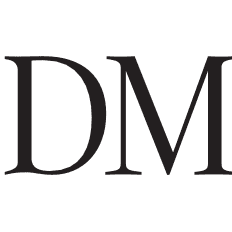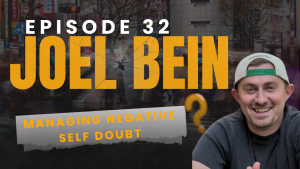The DissedMedia A Startup Story podcast has always been about transparency, documenting the ups and downs of building a company in real time. In Episode 26, host Ben shifts the focus to the heart of the project: the insights, articles, and new learning initiatives emerging from The Daily Pitch called The Daily Pitch Academy. Instead of obsessing over follower counts or impressions, this conversation digs into the content designed to make professionals better at what they do.
From authentic leadership to customer loyalty and from small business survival to global supply chain ethics, Episode 26 showcases the diverse range of ideas shaping today’s business landscape. It also introduces the Daily Pitch Academy, a new platform designed to make lifelong learning accessible, affordable, and practical.
Authentic Leadership at Scale
The first article Ben highlights is “Authentic Leadership at Scale”, a piece that addresses one of the biggest challenges for modern leaders: how to build a personal brand without losing credibility.
In a digital-first world, personal branding is not optional. Executives, founders, and even mid-level professionals are expected to curate an online presence that reflects their expertise. But with growth comes risk, scaling a brand too aggressively can erode the trust that authenticity is supposed to build.
The article argues for a balance between visibility and vulnerability. Leaders who scale their presence while staying grounded in their values are more likely to inspire confidence and create sustainable influence. It’s not about being everywhere, but about being genuine wherever you choose to show up.
Key takeaway: Authenticity isn’t sacrificed when scaling a personal brand, if the foundation is built on trust, consistency, and clarity of values.
From LinkedIn to the Boardroom
The second article, “From LinkedIn to the Boardroom”, extends the conversation about personal branding into organizational impact. It asks a crucial question: does your online reputation translate into influence inside the company?
LinkedIn has become the new professional stage, but too many leaders treat it as a personal showcase rather than a bridge to organizational credibility. The article explores how executives can leverage LinkedIn visibility to shape boardroom dynamics, strengthen stakeholder trust, and align personal brands with corporate strategy.
Key takeaway: Personal branding is more than self-promotion, it can be a lever for organizational influence if aligned with company goals.
Small Business Finance and Cash Flow Clarity
The third featured article tackles survival for small businesses: “Small Business Finance, Cash Flow Clarity, and Volatile Markets.”
Cash flow management may not sound glamorous, but it remains the number-one reason small businesses succeed or fail. The article provides practical frameworks for navigating volatility, including prioritizing liquidity, forecasting for multiple scenarios, and separating vanity growth metrics from operational sustainability.
Ben emphasizes that the piece is written with real-world entrepreneurs in mind, not just MBA students. The advice applies to anyone trying to keep a business alive when external conditions change faster than balance sheets can be updated.
Key takeaway: Growth is meaningless without liquidity. Cash flow clarity is the ultimate survival skill.
Small Business Growth From Local Roots to Digital Reach
In contrast to financial defense, the fourth article looks at offense: “Small Business Growth From Local Roots to Digital Reach.”
This piece explores how businesses that start small, often family-owned or community-driven, can scale their reach using digital tools. The focus is not on abstract scaling theory but on practical steps like local SEO, customer referral systems, and layered marketing strategies that build from neighborhood credibility to regional or even national expansion.
Ben notes that this theme resonates deeply with the mission of DissedMedia: scaling a grassroots project into a sustainable enterprise without losing its identity.
Key takeaway: Growth doesn’t have to mean abandoning roots, digital tools can extend local credibility into broader markets.
Customer Loyalty 3.0
The fifth article is “Customer Loyalty 3.0: Turning One-Time Buyers Into Lifelong Advocates.”
Traditional loyalty programs have relied on discounts, punch cards, and reward points. But today’s customers expect more, they want brands to recognize them as individuals, not just transactions. The article explains how loyalty now rests on three pillars: personalization, community, and shared values.
Ben highlights the difference between customer satisfaction and customer advocacy. A satisfied customer might buy again. An advocate tells ten friends why they should. In the age of social media, advocacy compounds growth far faster than satisfaction alone.
Key takeaway: Loyalty today means moving beyond retention toward advocacy, where customers become part of the growth engine.
From Candy to Controversy: The Mars Family and Cocoa Child Labor
The sixth featured piece takes a global turn. Guest contributor John Pabon’s article, “From Candy to Controversy: The Billionaire Mars Family and Cocoa Child Labor,” examines one of the world’s largest food companies through a lens of ethics and accountability.
The article critiques the gap between the Mars family’s public-facing commitments to sustainability and the ongoing issues of child labor in cocoa supply chains. It raises the uncomfortable but necessary question of whether corporations are using greenwashing campaigns to deflect from systemic problems.
Ben calls this contribution a reminder that business strategy cannot be divorced from social responsibility. For entrepreneurs and leaders alike, the takeaway is that reputation is fragile, and transparency is the only antidote.
Key takeaway: Global growth brings global accountability. Greenwashing may buy time, but transparency builds trust.
Introducing The Daily Pitch Academy
After walking through the week’s featured articles, Ben turns to a major development: the launch of the Daily Pitch Academy.
The Academy is designed as a learning platform that combines evergreen business content, interactive courses, micro-classes, and certification programs. Unlike traditional education, which often requires massive financial and time commitments, the Academy is structured to be flexible, affordable, and directly relevant to professionals at any stage of their careers.
Ben frames it as a natural extension of The Daily Pitch. While the site provides ongoing insights and articles, the Academy transforms those ideas into structured learning pathways. Professionals can engage deeply with leadership development, entrepreneurship, and organizational change strategies without leaving their jobs or taking on debt.
The Changing Landscape of Learning
The episode also situates the Daily Pitch Academy within a broader trend: the shift from traditional college education to alternative learning.
Enrollment in four-year institutions has been declining, while demand for certificates, online courses, and micro-credentials has surged. Professionals no longer want abstract degrees, they want applied knowledge they can use immediately.
Ben argues that this shift isn’t a threat to education, but an opportunity. Platforms like the Daily Pitch Academy can fill the gap by offering accessible, affordable, and relevant learning experiences that keep pace with how people actually work and grow today.
Why This Matters for Entrepreneurs
At its core, Episode 26 is about connecting ideas with action. The articles discussed highlight timeless challenges, leadership, finance, growth, loyalty, ethics, while the Academy provides a platform to turn those insights into practice.
For entrepreneurs, the message is clear: building a business is about more than chasing numbers. It’s about creating systems, learning continuously, and grounding decisions in both values and strategy.
DissedMedia A Startup Story continues to document that journey in real time. And with the Daily Pitch Academy now live, the project moves from storytelling to structured teaching, giving listeners and readers tools to shape their own entrepreneurial stories.
Final Takeaway
Episode 26 of DissedMedia A Startup Story is less about dashboards and metrics, and more about meaning. By highlighting articles on leadership, growth, loyalty, and ethics, and by launching a learning platform that embodies those values, Ben underscores the purpose behind DissedMedia: to help people get better at what they do.
For listeners, readers, and now learners, the message is simple: business is not just built; it is taught, shared, and scaled.







































